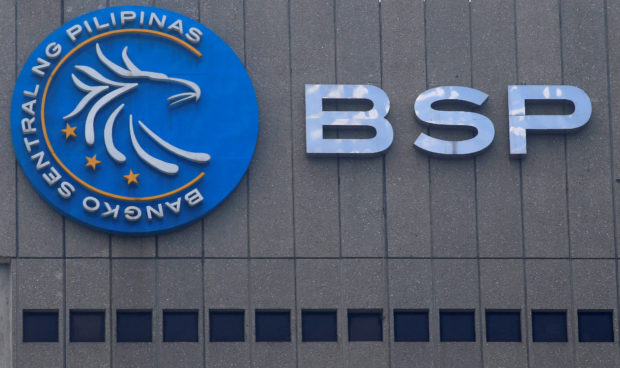PH consumer debt surging, BSP data show

FILE PHOTO: A logo of Bangko Sentral ng Pilipinas (Central Bank of the Philippines) is seen at their main building in Manila, Philippines March 23, 2016. REUTERS/Romeo Ranoco
Consumer debt is becoming even more “unsustainable” as households continue to turn to bank loans to support even their usual buying activities.
Based on data at the Bangko Sentral ng Pilipinas (BSP), the increase in credit card loans breached the 30-percent mark at a preliminary 30.1 percent in January 2023 (P560.4 billion).
Meanwhile, the hike in salary-based loans revved up to 67.1 percent in January 2023 to P120.8 billion.
The growth in and value of outstanding salary-based loans have been rising month after month since 2.2 percent in April 2022 (P79.4 billion) until 67.4 percent in November (P124.2 billion).
Nicholas Mapa, senior economist at ING Bank, said salary-based loans and consumer credit were quite active throughout the pandemic as incomes were constrained by lockdowns, a trend that was sustained late last year as households needed a lifeline to offset skyrocketing prices.
Borrowing to get by
“The bottom line is households are resorting to borrowing just to get by,” Mapa said.
The economist added that while inflation heated up steadily, consumers have had to resort to borrowing to fund even the most basic of purchases.
Unsustainable
Miguel Chanco, chief economist on emerging Asian markets at Pantheon Macroeconomics, said the overall surge in consumer debt was unsustainable, especially in an environment of rising interest rates.
“This increasing reliance on borrowing arguably is more a sign of weakness in household balance sheets, as people seemingly are having to rely more on loans in the face of intense cost of living pressures and the lingering damage of the pandemic to household savings,” Chanco said. INQ